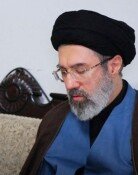Lawmaker Hongs List of Civil Servant Parents Whose Children Gave up Citizenship
Lawmaker Hongs List of Civil Servant Parents Whose Children Gave up Citizenship
Posted May. 18, 2005 23:11,
GNPs Biggest Hit Product
This is the compliment given to Grand National Party (GNP) lawmaker Hong Jun-pyos revision bill to the Korean Nationality Act that bans dual nationality holders from giving up their Korean citizenship before completing their mandatory national military service in Korea. Many inside and outside the party are pleased, saying that the opposition GNP took a favorable position on a major agenda for the first time in a long time.
However, as Hong moves to go further to propose additional revisions to the Overseas Ethnic Korean Law and the Higher Education Act, which mainly intend to confine the rights of the citizenship abandoners so that they are not allowed to enjoy the same rights as ethnic Koreans living in the foreign countries. Hong also considers releasing the list of their parents names, bringing increasing criticism that Hong is overly catering for populism.
It is not right to treat all dual nationality holders as rogues attempting to escape the mandatory military service. There are many exceptional cases such as those who were posted overseas and had a baby there during their 2-3 year stay, according to a nuriggun (netizen) with the nickname Witch Hunt who posted on Hongs internet homepage.
This is overreacting and condemning someone as a national traitor only because the person abandoned his citizenship, another nuriggun Talktalk criticized. There will be no hope for this country unless ditching a frog in a well attitude, said Younger on the GNP homepage.
Among the party members are some lawmakers with legal backgrounds who are questioning the revision bills. It is likely that unintentional victims will file lawsuits claiming the bill is unconstitutional, but Im afraid that open discussion might not go their way since national sentiment highly tends to overpower the Constitution in Korea, a lawmaker said bitterly.
On the other hand, Hong dismissed the reaction, saying that the response demonstrates how deeply the selfish idea of obtaining the rights only without resuming ones responsibilities has been rooted in this society. He added that claiming the public release of the list be the privacy violation is not legally correct.
Seung-Heon Lee ddr@donga.com







